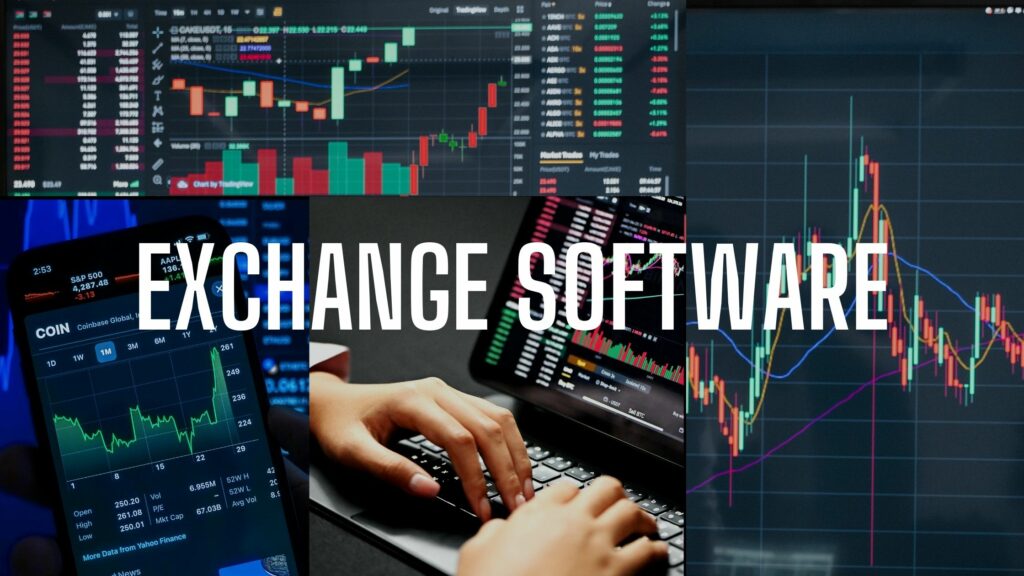Ways To Start A Bitcoin Exchange Business will be described in this article. During the Gold Rush, most would-be miners lost money, but those who sold them picks, shovels, tents, and blue jeans made a tidy profit, according to renowned investor Peter Lynch. One might compare the makers of picks and shovels to the owners and operators of bitcoin exchanges in the gold rush that is the cryptocurrency boom. This step-by-step manual will help you get started in the proper path if you, too, recognise the potential benefit and want to start your own Bitcoin exchange business.
How To Start A Bitcoin Exchange Business In 2023
In this article, you can know about How To Start A Bitcoin Exchange Business In 2023 here are the details below;
Start your Crypto Exchange

Let’s look at the processes in more detail now that you have seen what it takes to start your own cryptocurrency exchange.
1. Obtain legal counsel to ensure licensing requirements are met
To comprehend the regulatory requirements of your new enterprise, it is crucial to seek legal advice before putting your plan into action. In each country where the business intends to conduct business, the appropriate licencing must be secured. In many locations, cryptocurrency exchanges operate with little to no oversight because government and regulation have not yet caught up with technology. In contrast, in other locations, such as the US, Bitcoin operators are required to have a licence as a Money Transmitter Business and to adhere to SEC and CFTC rules and regulations, among others. Because they fall within the currency exchange category, exchanges often must abide by Know Your Customer (KYC) rules, which are becoming more and more common to fight money laundering. These regulations, for instance, have been in effect in the United States since 2002 as a result of the Patriot Act. Be sure to speak with a lawyer experienced in the field as regulations differ by jurisdiction. Also check Free Legal advice
2. Attain funding for venture
You should be aware of the anticipated expenditures before you start your project. A minimum of $135,000 is required to establish and launch a bitcoin exchange. This covers the price of technology, hosting, some first legal assistance, government registration, and initial advertising. Even if not all finances must be provided up front, it’s crucial to make sure the enterprise has access to enough money to provide it a decent runway. Startups sometimes make the error of failing to prepare for the future, resulting in modest first raises that may cover development costs but deprive the business of the vital operating capital required until it achieves profitability. Startups frequently commit the error of obtaining licences from dishonest cryptocurrency exchange providers, who collect recurring fees without disclosing the costs and legal duties associated with establishing and operating an exchange.
3. Find a technology solution provider
With no royalties or compensation arrangements, Modulus offers complete custom cryptocurrency exchanges for a one-time licence price. Clients can host the exchange themselves, there are no recurring fees, and they receive entire source code, which is crucial for auditing because some authorities ask to see the source code. Modulus has more than 20 years of expertise creating stock exchanges, including the backend technology used by some of the biggest stock exchanges in the world. Modulus is always focused on offering clients more value.
Why white label with source code? White label exchange software with full source code enables all the customization of a custom-built exchange while dramatically reducing time to market and total cost.
4. Connect your exchange with others for added liquidity

Liquidity is the foundation of any effective exchange. Potential clients will view your new enterprise with mistrust if it lacks an order book and trading activity. We can integrate your exchange with a network of active exchanges, improving its liquidity, to get around these problems without having to fake activity using dummy accounts within the new exchange.Keep in mind that your new exchange will have less trouble with liquidity the wider the network of exchanges.
5. Partner with a payment processor
Not all payment processors are created equal. Fee structures, among other things, will differ greatly amongst businesses. To compete with other exchanges, you must have the lowest transaction rate. Be sure you comprehend the deal you’re signing because some processors include hidden costs in their agreements. Settlement time and adherence to PCI DSS, a set of best practises to protect cyber security, are two more distinctions amongst processors. Be aware that while many state laws in the US do, federal law does not.
To protect your new business from online risks, make sure your payment processor is PCI-compliant. Another illustration of how critical it is to comprehend the nuances of industry regulation is provided here.
6. Implement best security practices

With offline cold storage wallets, two factor authentication, and encrypted databases, exchanges built with Modulus technology are among the most secure in the world. Moreover, Modulus technology does not keep passwords (only hashes). We’ve written a lot about the data breaches that have made headlines in the sector, such Mt. Gox and Bithumb. The final word? Exchanges are scrambling to set themselves apart on the basis of security as cryptocurrencies have become a prime target for hacking and fraud. Also check Managing Your Remote Team
7. Go live via beta testing
Your exchange has been created. You have a contract with a company that handles payments. Also, you have gone to great lengths to guarantee that your exchange complies with all laws and norms. You have taken steps to protect your business against cybercrime. It’s time to launch your exchange and run a beta test of all of its features.
8. Start marketing and PR campaign

Once your exchange is started, it’s time to engage with crypto news publications like Coindesk. To avoid having to scramble to find more funds after your initial raise, it’s crucial to carefully plan your marketing activities and their expenditures. Until a critical mass of traders is established, exchanges frequently do not include a marketing budget and instead depend on free social media promotion.
9. Take care in providing customer support
Although providing excellent customer service is the final step in creating a successful cryptocurrency exchange, how well you perform in this area will decide your long-term success. Individuals who interact with customers must pay close attention and resolve customer grievances and technical concerns satisfactorily. Since cryptocurrencies never stop trading, you should establish a ticketing system like ZenDesk and staff it with trained and friendly people who are available 24/7.
10. Maintain a legal team for ongoing compliance

We cannot emphasise enough how crucial it is to uphold legal compliance and adhere to all existing and prospective laws and regulations, not only in the country where your exchange is based but also in any other country where your exchange members or traders will live or conduct business. In order to maintain your exchange lawful in all of the countries where you will conduct business, it is crucial to either hire a full-time in-house legal compliance team or outsource to renowned law firms. This is because cryptocurrency rules are fast shifting globally.
Of course, no manual, no matter how detailed, can address all of your concerns. But perhaps this has assisted you in creating a basic action plan that will allow you to proceed. As always, Modulus is here to support you along the process, so if you have any more inquiries, don’t hesitate to contact us by phone or email. Bitcoin Exchange Software > Get Started with MyExchange
F.A.Q.s
Which programming languages does MyExchange employ?
- C# and Go were used to create MyExchange.
React, Swift for iOS, and Java for Android are used to build front-end applications.
Which outside libraries are incorporated into MyExchange?
NLog, log4net, Newtonsoft JSON, and SuperWebSocket.
Is an SSL certificate required for MyExchange?
- Sure, unless SSL is turned off (not recommended).
Does MyExchange include a sample trading client?
- Yes.
The example enables a trader to log in using a username and password, update account information for testing purposes (purchasing power, funds, etc.), and execute trades.
Does MyExchange have an administrator programme?
- Yes, it has an admin area where you can add users, edit or delete accounts, check active users, logs, and more.
Can I licence the MyExchange source code without customization?
- The source code is only made available to clients that engage an independent Modulus Certified developer because of the complexity of MyExchange and the fact that the MyExchange matching engine is only one component of a bigger crypto exchange solution. After your developer is finished with the customization and implementation, source code is made available.
Where does MyExchange store its data?
Your servers will store all account, order, and market price data. There are no connections to Modulus servers. Regulation and Compliance Please note that MyExchange may not be used for converting bitcoin into real currency or vice versa without proper licencing and regulatory control.
Sports wagering and other forms of gambling are not permitted on MyExchange. Before creating your exchange, speak with a lawyer. Bitcoin exchanges are required to abide by all laws and have the appropriate AML, KYC, and legal compliance procedures in place for each jurisdiction in which they conduct business in addition to their place of residence. Modulus offers software that acts as a buffer between financial products and institutions. As a result, we lack a financial institution licence. It is likely that you will need to be a registered money services provider (MSP) or mobile money operator if your company intends to take deposits and issue credits on any crypto currency network (MMO). The regulatory environment of their organisation should be respected by all Modulus clients. It’s simple to start. Contacting us to set up an initial conversation is the first step.
We’ll put you in touch with a freelance Modulus Certified developer who will compile all the necessary technical information for a free Statement of Work for your unique exchange. After creating your unique Statement of Work, we will ask for a follow-up meeting to go through the project, your delivery schedule, and any associated fees. If you decide to proceed, we’ll also send you an invoice, and you can even pay with bitcoin!
Why Modulus?
A financial technology firm is called Modulus. Even though it might not seem like a true differentiator, it is. It indicates that our solutions are the result of our extensive expertise working in the financial technology sector. Developers and engineers with practical trading experience provide our goods and services. At Modulus, everyone speaks your native tongue.
